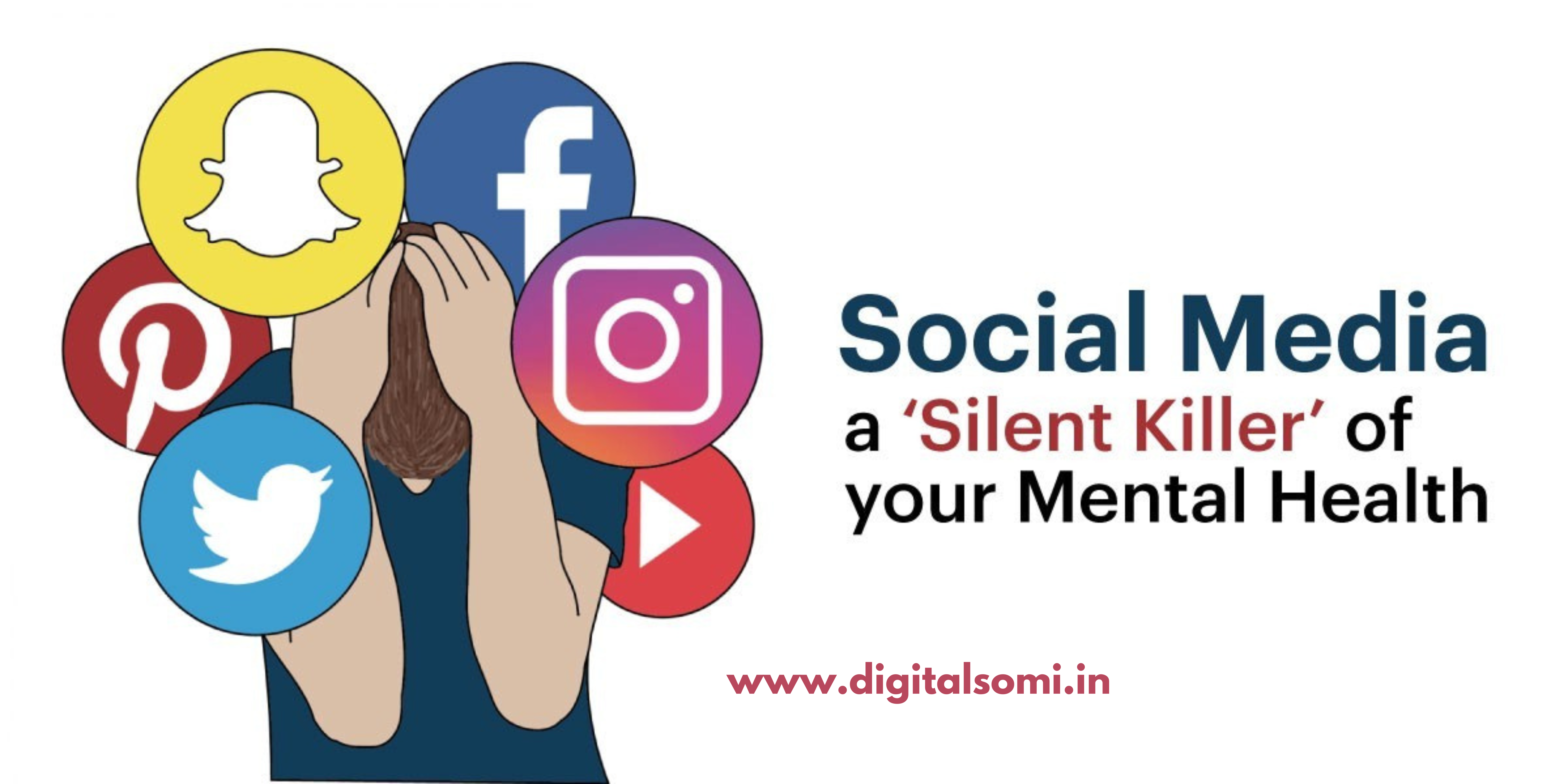
“In today’s fast-paced world, understanding Mental Health in the Digital Age: The Impact of Social Media is more important than ever, as platforms like Instagram, Facebook, and TikTok shape our emotional well-being.”
allowing us to connect with others instantly, share our lives, and stay informed about global events. However, with these benefits come significant concerns, particularly about the impact of social media on mental health.
As millions spend hours online, examining the complex relationship between social media and well-being is important. Social media can both positively and negatively influence mental health, depending on how we engage with it. This blog will explore how social media affects mental health, the risks involved, and how we can cultivate healthier habits to protect our mental well-being in the digital world.
The Rise of Social Media and Its Influence on Our Lives

The growth of social media has been nothing short of exponential. What began as a tool to connect friends and family has now become a global network with billions of active users. Whether through sharing photos, expressing opinions, or staying updated on news, social media has become a primary source of information and entertainment.
However, as social media use has increased, so has the concern over its impact on mental health. Research shows that excessive social media use can contribute to a range of mental health issues, including anxiety, depression, and low self-esteem. But why does this happen, and how does social media influence our mental health?
The Pressure of Perfection: Social Comparison and Its Effects

One of the most significant psychological effects of social media is the phenomenon of social comparison. Social comparison occurs when individuals evaluate their own lives, accomplishments, or appearances about others. On social media, this often happens when users scroll through feeds filled with carefully curated photos, success stories, and “highlight reels.”
This constant exposure to idealized images of beauty, success, and happiness can create unrealistic expectations. It’s easy to feel inadequate when comparing your own life to someone else’s perfect-looking online persona. This pressure to measure up can lead to feelings of low self-esteem, dissatisfaction, and even body image issues. Young people, in particular, are vulnerable to these effects, as they are still forming their sense of self-worth and identity.
Moreover, the pursuit of validation on social media—through likes, comments, and shares—can deepen the desire for external approval. When these forms of validation are lacking, it can lead to feelings of rejection, anxiety, and a loss of self-confidence.
FOMO: The Fear of Missing Out

Another major issue arising from social media is the “Fear of Missing Out” (FOMO). This refers to the anxiety people feel when they see others engaging in activities or experiences that they’re not part of. Whether it’s a vacation, a party, or a social gathering, social media often presents a curated version of life, showcasing exciting moments while leaving out the mundane.
The fear of missing out can create a sense of inadequacy and exclusion. It can make individuals feel like they are not living life to its fullest or that their own experiences are less exciting compared to those of their friends or online influencers. Over time, this can lead to feelings of loneliness and isolation, even when surrounded by others.
Cyberbullying and Online Harassment

Unfortunately, social media also provides a platform for cyberbullying and online harassment. The anonymity that the internet offers allows people to say things they would never say in person. This can lead to hurtful comments, insults, and even threats.
For those targeted by cyberbullying, the effects can be devastating. Victims may experience depression, anxiety, and even suicidal thoughts. Unlike traditional bullying, online harassment doesn’t have a clear escape; it can follow individuals home through their devices, affecting their mental health 24/7. Adolescents, who are particularly active on social media, are especially vulnerable to the harmful effects of cyberbullying.
The Dopamine Dilemma: Social Media Addiction

Social media platforms are designed to be addictive. The endless scrolling, the instant gratification of likes and notifications, and the constant flow of new content trigger the brain’s reward system, releasing dopamine—the “feel-good” neurotransmitter. This creates a cycle of dependence, where users are compelled to return to social media again and again to seek more validation and pleasure.
Over time, this can lead to social media addiction, where individuals find it hard to disconnect and engage in real-life activities. This addiction can interfere with personal relationships, productivity, and self-care. It can also disrupt sleep patterns, as people often stay up late scrolling through their feeds, which can lead to feelings of fatigue and irritability.
The Positive Side: Building Supportive Communities

While social media has its risks, it’s not all negative. One of the most significant benefits of social media is its ability to connect people across vast distances, allowing individuals to share experiences and find support. For those facing mental health challenges, social media can offer a sense of belonging and community.”A balanced approach to using social media can improve Mental Health in the Digital Age: The Impact of Social Media.”
Online support groups, forums, and mental health advocacy pages provide a platform where people can share their stories, seek advice, and connect with others who are going through similar struggles. Social media has also played a pivotal role in raising awareness about mental health issues and breaking down the stigma that often surrounds them. By normalizing conversations about mental health, social media can help individuals feel more comfortable seeking help and opening up about their experiences.
Healthy Social Media Habits: How to Protect Your Mental Health

Given the potential risks of social media, it’s essential to develop healthy habits that protect our mental health. Here are some tips for maintaining a balanced relationship with social media:
- Set Time Limits: Use built-in features on your phone or apps to limit the time you spend on social media each day. This can help prevent excessive use and give you more time for offline activities.
- Curate Your Feed: Follow accounts that promote positivity, mental health awareness, and authentic content. Unfollow or mute accounts that make you feel bad about yourself or contribute to negative emotions.
- Practice Digital Detoxes: Take regular breaks from social media. Disconnecting from your devices for a few hours or even a full day can help you recharge and refocus.
- Engage with Purpose: Instead of passively scrolling, try to engage with content that is meaningful to you. Comment on posts, share your thoughts and connect with others who share your interests and values.
- Be Mindful of Your Mental Health: Pay attention to how social media affects your mood. If you find that it’s making you feel anxious, depressed, or inadequate, it may be time to take a step back and reevaluate your online habits. Explore more
- “When discussing Mental Health in the Digital Age: The Impact of Social Media, one cannot ignore the role of social comparison.”
Conclusion: Finding Balance in a Digital World
Social media is a powerful tool that has changed the way we communicate and connect with others. While it has the potential to enhance our lives and provide valuable resources, it also presents significant challenges to our mental health. By being aware of the risks and adopting mindful habits, we can protect our well-being and use social media in a way that supports rather than undermines our mental health.
“To safeguard mental health in the digital world, we must acknowledge Mental Health in the Digital Age: The Impact of Social Media and develop healthier habits.”
In the digital age, finding balance is key. It’s important to remember that real-life connections, self-care, and mental well-being should always come first, even in a world that constantly encourages us to stay plugged in. By cultivating healthy online habits and seeking support when needed, we can ensure that social media remains a positive force in our lives. click here


